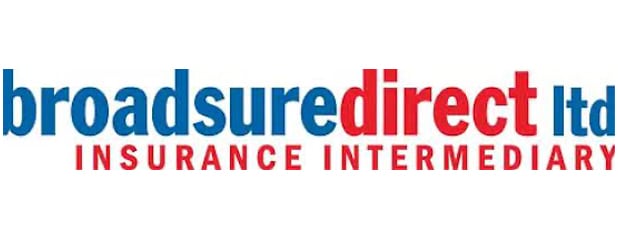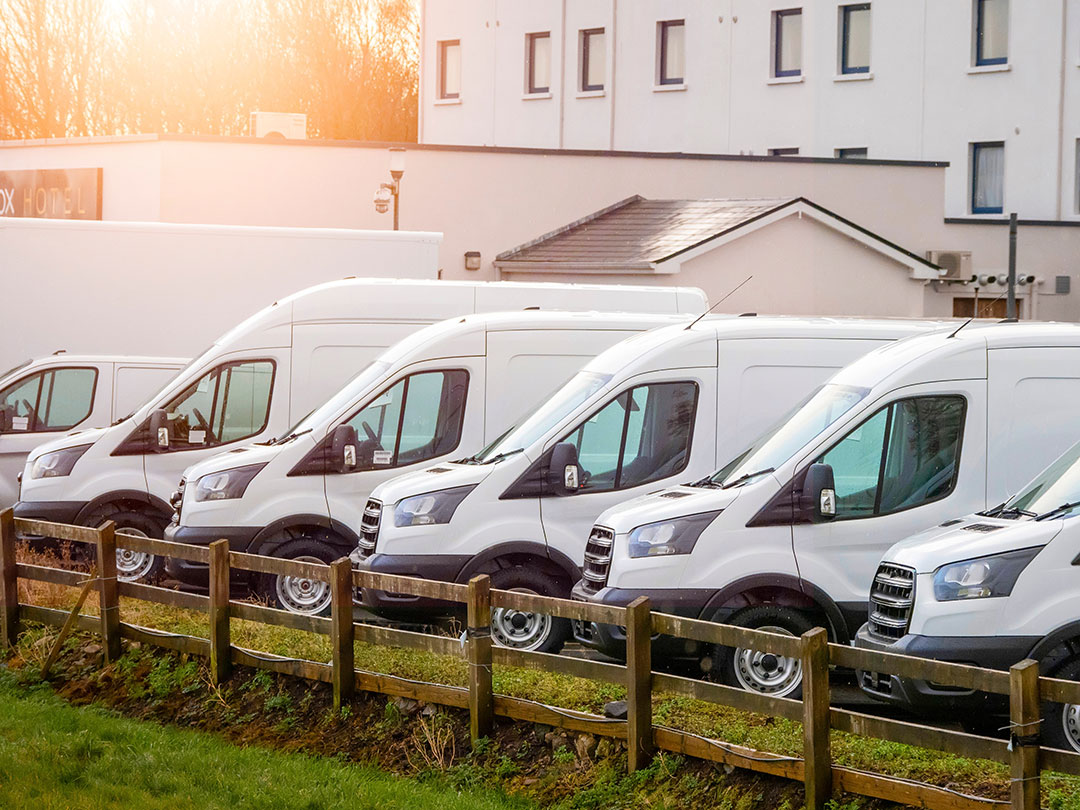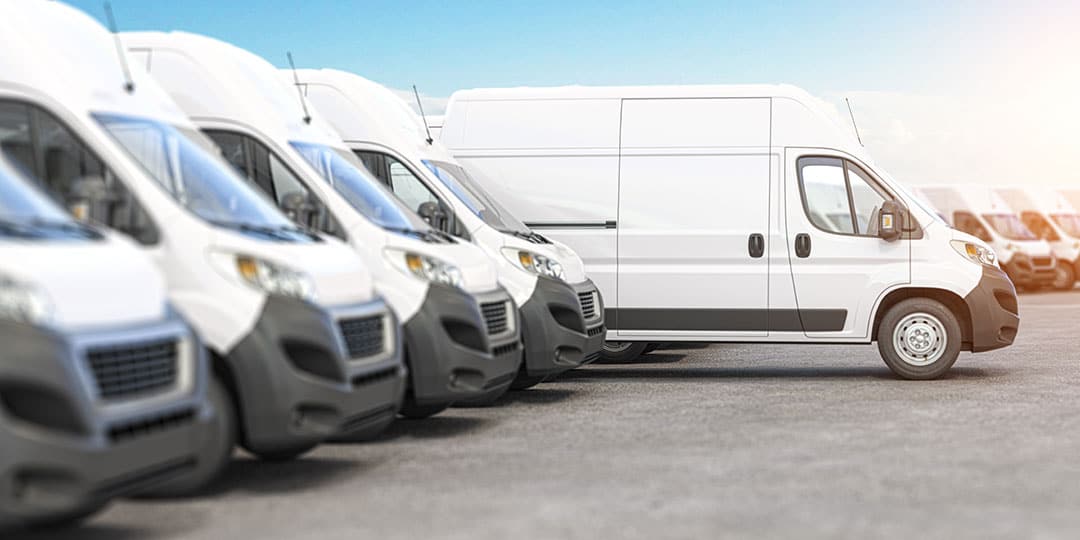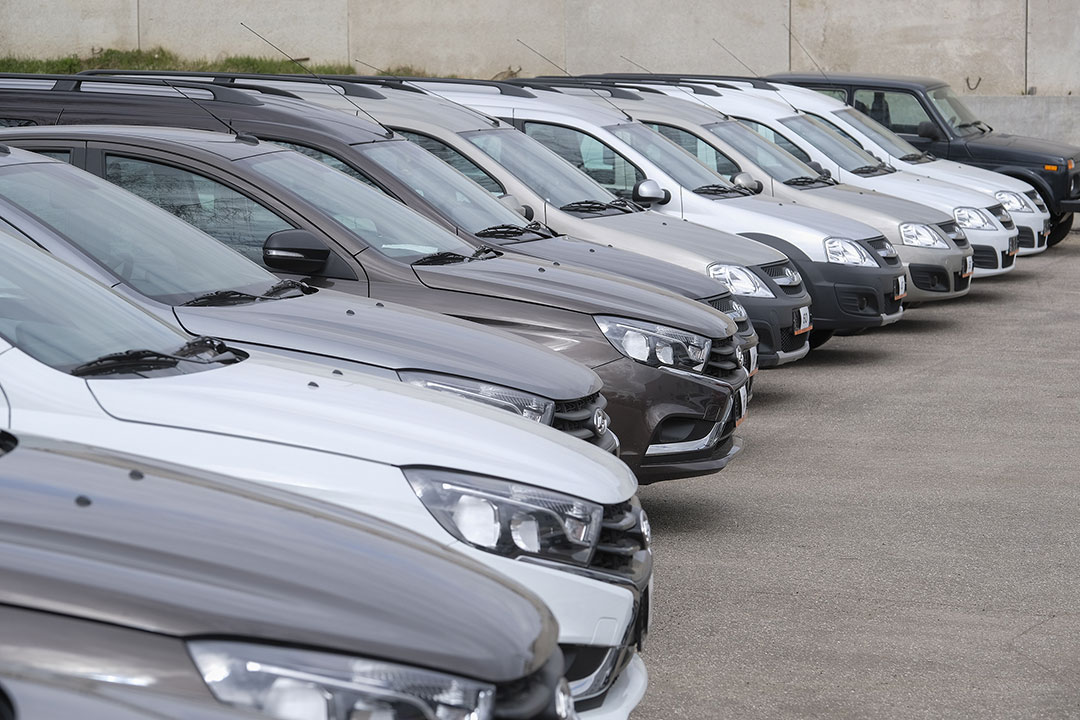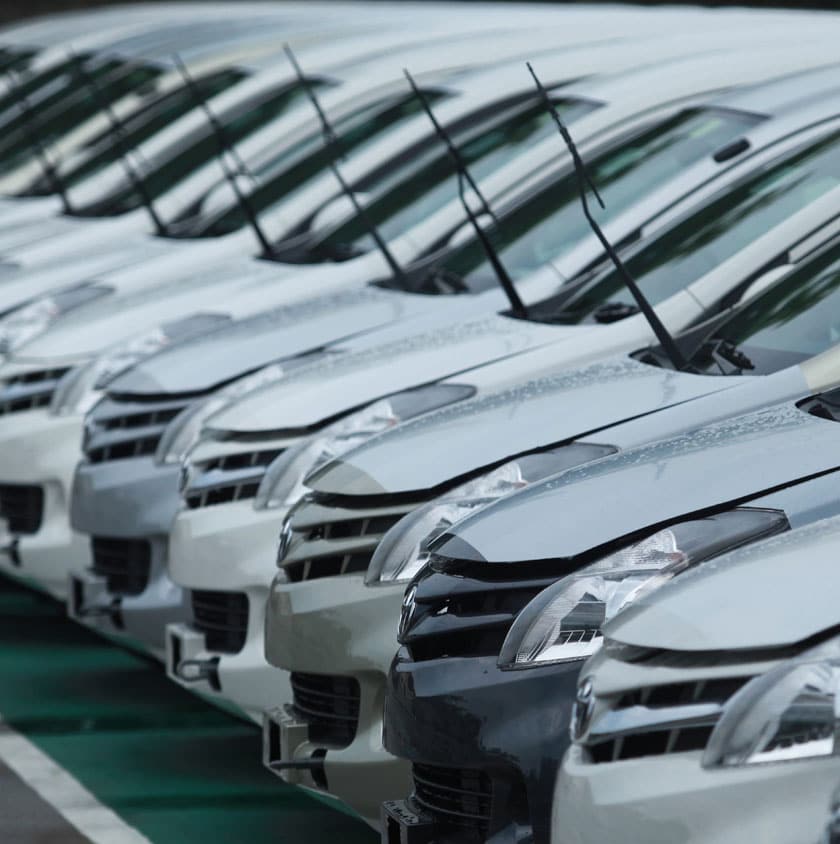
Fleet Insurance
Compare Fleet Insurance Quotes
- Complete one short form
- Quickly compare quotes
- Find a great deal today

Compare fleet insurance policies from leading insurers, including;
Why Compare Fleet Insurance Quotes at SimplyQuote.co.uk
Searching for an affordable fleet insurance quote that suits your needs can easily become a daunting and time-consuming task. The vast array of insurance providers, each offering competitive deals, can leave you feeling overwhelmed.
Thankfully, at SimplyQuote, we’re here to make finding savings on your fleet insurance simple. Through our partnership with Quotezone, you can compare fleet insurance quotes from some of the UK’s leading providers to find a price that works for you.
Whether you’re looking to switch to a more competitive policy or purchasing motor fleet insurance for the first time, try the comparison tool today!

What Is Fleet Insurance?
Fleet insurance is a tailored business insurance policy designed to cover multiple vehicles owned or operated by your business. Instead of juggling individual policies for each car, van, or truck, you can consolidate the cover under one plan. This simplifies management and potentially reduces costs.
If your business has two or more vehicles requiring insurance, fleet insurance is a convenient solution.
To avoid any confusion, fleet insurance goes by several different names, such as:
- Mini fleet insurance
- Fleet business insurance
- Family fleet insurance
- Multi-vehicle insurance
- Fleet policy
- HGV fleet insurance
- Taxi fleet insurance
- Small fleet insurance
- Car hire fleet insurance
- Multi car & van fleet insurance
The benefits of fleet insurance
- Simplified management: Say goodbye to the hassle of tracking multiple policies with different renewal dates. A single fleet policy streamlines administration, saving you valuable time, money, and resources.
- Cost savings: Fleet insurance can be more economical than individual policies. Insurance companies often offer discounts for insuring multiple vehicles, especially if your fleet has a good safety record.
- Standardised cover: Ensure all your vehicles have consistent cover. This simplifies claims processing and reduces the risk of gaps in protection.
- Flexibility: Fleet insurance cover can be customised to fit your specific needs. You can choose the levels of cover you need for different types of vehicles within your fleet.
It’s not just about saving money – fleet insurance simplifies the management of your business vehicles, making it a convenient, time-saving, and practical option.
Who can get fleet insurance?
Fleet insurance is great for businesses with more than one vehicle. From motorcycles to 44-ton HGV trucks, fleet insurance covers them all.
Whether you run a delivery service, landscaping crew or have a sales team on the road, fleet insurance covers all your business vehicles under one fleet insurance policy.
Is fleet insurance only for businesses?
The short answer is: no. While it’s normal to think fleet insurance is associated with businesses, it can be used domestically. For example, when kids purchase their own vehicles, families can benefit from utilising a family fleet insurance plan. This is more cost-effective in the long run as opposed to insuring single vehicles.
However, there are certain requirements you’ll need to meet to be eligible:
- Be at least 18 years of age
- Be able to provide details of your fleet
- Be able to provide details about your business
What Types of Vehicles Are Covered By Fleet Insurance?
Many vehicle types are covered by fleet insurance, from everyday small, medium and large cars to more specialist vehicles. These include:
- Motorcycles
- Scooters
- Lorries
- Mini-buses
- Taxis
- Pickup trucks
- Dump trucks (trippers)
- Courier vans
- Box vans (a.k.a Luton vans)
- Heavy goods vehicles (HGVs)
- Tractors
How many vehicles will an insurance provider cover
The number of vehicles allowed per insurance policy varies between insurance providers.
Some cover as few as five vehicles while others can handle massive fleets of 500+! Each provider will have their own minimum and maximum limits, depending on what kind of businesses they insure.
Expert insight: Smaller businesses can explore “mini-fleet insurance” options for up to 15 vehicles.

What Are the Levels of Cover with Motor Fleet Insurance?
There are three main types of fleet insurance cover, each offering different levels of protection for your business vehicles:
Additional fleet insurance plans include:
- Private vehicle fleet insurance – also called multi-car insurance, is the domestic equivalent of commercial fleet cover.
- Telematics fleet insurance – this is becoming a popular fleet insurance plan for commercial businesses. Driver performance is collected via a “black box” (or mobile app) to track and monitor the driving behaviour of your drivers. The sophisticated feedback data is then used to calculate your fleet insurance premiums.
Note: Some fleet insurers may not offer third-party-only insurance and a comprehensive fleet insurance plan may be their minimum requirement.
| Cover Type | Damage to Third-Party Property | Liability for Injury to Others | Towing Liability | Fire and Theft Cover | Vehicle Repair Cover | Additional Cover |
|---|---|---|---|---|---|---|
| Third-party only (TPO) | Yes | Yes | Yes | Yes | No | None |
| Third-party, fire and theft (TPFT) | Yes | Yes | Yes | Yes | No (except fire or theft) | None |
| Comprehensive Cover | Yes | Yes | Yes | Yes | Yes | Windshield, personal effects, medical expenses, accidental damage |
Looking for fleet insurance? Get your quote today!
Get Quotes
What Add-Ons Can I Include In My Fleet Insurance Policy?
You can add many extras to your fleet insurance policy, ranging from personal belongings to courtesy vehicle cover.
Personal belongings cover
When you employ drivers, you will want to ensure that they are covered by personal belongings cover. If a driver loses their belongings when working, it’s not only extremely stressful for them, but it can quickly become a problem for you, too.
Most insurers will offer some form of individual belongings cover in their fleet policies, but it’s best to always ask before you sign up for a new deal. Ideally, you will want to check what belongings are included to see if it is the right cover for you.
Breakdown cover
Even the most reliable vehicles are prone to breakdowns, which is why breakdown cover exists. Breakdown cover will protect your vehicle fleet if a roadside accident requires a breakdown team to be sent out.
Being stranded on the side of the road can be stressful for even the most experienced of drivers. Breakdown cover will ensure that costs associated with roadside vehicle recovery are covered, so you don’t need to pay a premium to send out a mechanic.
If you want the best cover for your drivers and are worried about high breakdown costs, add this cover to your fleet policy.
Goods in transit cover
If you operate a transporting service, you may want to consider adding goods covered to your fleet insurance policy. This will protect you from accidental damage to the goods you transport, and some policies will even cover the loss of goods.
Most insurance providers offer a flexible policy, allowing you to add goods cover to create a comprehensive policy.
Liability cover
From house cover to fleet insurance, almost all insurance policies will offer some form of liability coverage as additional protection. In terms of fleet insurance, liability cover protects you from any accidents at the workplace.
Most liability covers will protect from a range of accidents that can occur, such as bodily or property damage. Although it isn’t included as standard, you should ensure it is added to your fleet insurance policy to cover your business from high costs associated with workplace liabilities.
There are usually two compulsory types of liability every business owner needs:
- Public – in cases where a person of the general public is injured or harmed by one of your company vehicles
- Employee – to protect you against any legal repercussions involved if/when one of your employees is injured whilst at work
It’s important to choose the right one for your business. If possible, we recommend investing a little extra into public liability cover as it tends to offer the most comprehensive package.
Legal expenses cover
Although rare, you may find yourself in a situation where you are expected to pay high legal expenses. Whether it’s defending yourself in court or suing a customer for a myriad of reasons, protecting yourself from high legal costs can give a great level of security.
Adding legal expense cover to your fleet insurance shouldn’t be an issue, as most insurance providers offer some form of legal expense cover. The price of this cover will tend to depend on whether you have clean records and the drivers you hire aren’t in any form of legal trouble.
But if you are looking for an additional level of protection that is slightly different to other insurance additions, then legal expense cover is well worth the investment.
Courtesy van cover
Most comprehensive fleet insurance plans have courtesy vehicle cover included. This type of cover ensures business continuity by providing a temporary replacement vehicle whilst yours is in for repair.
This keeps your drivers on the road and minimises disruption to your business operations.
Hire and reward
Hire and reward insurance is essential if your fleet vehicles are used for commercial deliveries or transporting goods for a fee – removal companies are an example of this.
It provides cover for vehicle damage (or repair) as well as legal costs and compensation for anyone who is injured should an accident occur. Essentially, hire and reward insurance protects you in case of accidents while transporting someone else’s property.
Replacement locks
Losing your vehicle keys can be stressful – and inconvenient. Replacement lock insurance eliminates the financial burden of replacing locks and/or re-keying your entire fleet if keys are lost, misplaced, or stolen. This saves you time and money and ensures your fleet vehicles remain secure.
Trailer cover
Many businesses – such as towing companies – use trailers for various purposes. Trailer insurance extends your fleet insurance to include trailers you use for commercial purposes.
These include:
- Horseboxes
- Motorcycle trailers
- Boat trailers
- Flatbeds
Generally, comprehensive trailer insurance plans cover the costs of repair and replacement of your business trailers, including if they are vandalised, stolen or damaged from harsh weather.
Does Fleet Insurance Come with Exclusions?
There are a few exclusions you should be made aware of before you invest in motor fleet insurance:
- Regular wear and tear regarding the vehicle’s interior.
- The insurance policy will not cover drivers who drive under the influence (drugs or alcohol).
- No claims discount (NCD) – if you insure a fleet of vehicles under a single policy, you generally won’t earn a no-claims bonus.
- Theft from unattended vehicles – typically, insurers won’t replace tools, goods, or belongings stolen from the vehicle.
- Theft by deception (e.g. giving vehicle keys to phoney valent parkers, security guards etc).
- Driving without a valid licence.
- Goods cover will rarely include transportation of hazardous materials.
- If your vehicle is loaned to a third party not covered by the fleet insurance plan.
- If any vehicles covered (cars, vans etc.) are operated outside of business use.
Double-check with your insurer to see what is or isn’t covered by your chosen policy.
How Much Does Fleet Insurance Cost?
Fleet insurance costs can vary based on several factors, including:
- The number of vehicles
- Individual vehicle insurance costs
- The percentage discount received for insuring as a fleet.
Fleet insurance offers potential savings that can quickly amount to thousands of pounds. Here are a few examples of potential savings based on different scenarios:
| Number of Vehicles | Cost per Vehicle | 10% Discount Savings | 20% Discount Savings | 30% Discount Savings | 40% Discount Savings |
|---|---|---|---|---|---|
| 3 | 500 | £150 | £300 | £450 | £600 |
| 5 | £1,000 | £500 | £1,000 | £1,500 | £2,000 |
Related Read: How much is fleet insurance?

How Can I Compare Fleet Insurance Cover?
While “cheaper” fleet insurance isn’t always the end goal (as you want good cover), comparing fleet insurance quotes can help you find the most affordable plan with the right level of protection for your business.
What things should I consider when comparing fleet insurance quotes?
- The fleet insurance policy you choose should tick all the necessary boxes related to your specific needs, such as employer’s liability, goods in transit, and/or trailer cover.
- Weigh up costs vs convenience. For example, “any driver, any vehicle” insurance (i.e. Any Authorised Drivercover) means any employee – granted they have the necessary training and licenses – can drive any vehicle in your fleet. This saves the headache of managing multiple drivers for specific vehicles. However, this level of flexibility and comfort is often more expensive.
Here’s a quick 5-step guide on how to navigate the comparison process:
Understand your needs
- How many vans do you have?
- What types of vans are they (standard, pickups, etc.)?
- What level of cover do you need (third-party only, fire and theft, comprehensive)?
- What’s your driver experience like?
Gather quotes
- Don’t settle for just one! Get quotes from multiple insurance providers.
- Utilise the online comparison tool to save time, money, and effort.
- We make comparing fleet insurance policies a breeze.
Compare coverage details
Look beyond the price tag. Carefully compare what’s included in each policy, such as;
- Liability limits
- Deductibles
- Additional coverage
It’s also wise to check if fleet insurers offer some level of flexibility to your policy, especially if you want to add or remove company vehicles. This can be extremely beneficial to growing businesses.
Consider fleet safety programs
Some insurers offer discounts for fleets with proven safety records or those that implement safety training programs.
Negotiate with confidence
Once you have a few quotes, use them as leverage to negotiate a better rate with your preferred provider.
By following these steps, you can effectively compare insurance quotes and find a plan that offers the right protection at a competitive price for your business.
How Can I Get Cheap Fleet Insurance?
You can implement several strategies to reduce the cost of motor insurance, such as:
Switch to electric or hybrid vehicles
One of the best ways to cut down costs both in fuel and insurance is to switch to electric or hybrid vehicles. As most non-fuel vehicles will have slightly weaker engines, insurance providers generally deem them to be safer.
This can lead to a lower price on your chosen fleet insurance policy and is a worthy investment.
Ensure all drivers have clean records
Fleet insurers aim to minimise the risk of accidents.
You can potentially lower your premiums by prioritising mature drivers with a couple of years of experience under their belts. Responsible drivers with a clean driving track record (e.g. no driving under the influence, speeding fine infringements, etc.) are statistically less prone to accidents when compared to younger, inexperienced drivers.
Train your drivers
Insurance providers could potentially lower your insurance premiums if you can prove your drivers have been trained.
When insurance providers decide on the cost of their fleet insurance, they will do a risk assessment. Trained drivers are a great way to show an insurer that you hire a knowledgeable team and that you are a business that wants to reduce the chance of an accident.
High levels of security
Ensure that the area where you secure your vehicles when they are not in use is protected via high levels of security. For example, CCTV systems or even a security guard can show insurance providers you are willing to put in the extra effort to protect your vehicles from risks.
Dashboard cameras are another level of security you should consider adding to your fleet vehicles. And some insurers may require this as a standard before they decide to insure your fleet.
Compare fleet insurance at SimplyQuote.co.uk to get cheaper fleet insurance that aligns with your business needs and budget today!
Looking for motor fleet insurance? Get your quote today!
Get QuotesFrequently Asked Questions
Generally, it could be cheaper when you bundle multiple company vehicles under one insurance policy as opposed to individually insuring motor vehicles.
Any business with two or more company vehicles is eligible for fleet insurance. This transcends to motorcycles, vans, lorries or large 44-ton trucks.
Generally, when you have more than two vehicles, insurers will cover you for fleet insurance. However, some insurers may require a minimum of five vehicles before they consider it a ‘fleet’.
It’s not uncommon for insurance providers to exclude drivers (or offer much higher premiums) under 25 years old as they are statistically prone to more accidents.

